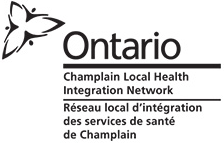If you are an organization that would like to partner with us to help keep this database up-to-date, please contact us for more information.
Basic Needs
Basic Needs resources are resources such as food, housing (including shelters), transportation and temporary financial assistance.
1. Child Welfare including Children's Aid Society (CAS)
The child welfare / child protection system is a group of services that promote the well-being of children by protecting children from abuse or neglect, ensuring they are safe, and strengthening families so that they can successfully care for their children.
Suggest a resource
2. Food and Nutrition
This section has programs that provide food or low cost food to those in need.
Suggest a resource
3. Housing and Home Supports
Housing services help individuals find and keep places to stay. This is not an exhaustive list of resources and services, but highlights those which might be of interest to individuals with mental health issues.
Suggest a resource
3.1 Long-Term Care Facilities for Seniors
Long-term care facilities and homes (aka. "nursing home") are for people who require the availability of 24-hour nursing care and supervision within a secure setting. They provide a higher level of care and support than retirement homes or supportive housing. Long-term care homes are owned and operated by various organizations: 1) Nursing homes are usually operated by private corporations; 2) Municipal homes for the aged are owned by municipal councils. Many municipalities are required to build a home for the aged in their area, either on their own or in partnership with a neighbouring municipality; 3) Charitable homes are usually owned by non-profit corporations, such as faith, community, ethnic or cultural groups.
Suggest a resource
3.2 Group Homes, Residential Care and Supported Housing
A group home is usually a single-family dwelling for special populations that need a supervised living environment. Common examples include children and youth in care, individuals with developmental or physical disabilities, individuals recovering from substance abuse, teenaged mothers, or victims of domestic violence.
Suggest a resource
3.3 Home Supports
Refers to supports and services provided in the person's home.
Suggest a resource
3.4 Respite Care and Child Care
Respite refers to short term, temporary care provided to parents (or caregivers) so that they (and their families) can take a break from the daily routine of caregiving, and can range from a few hours to enough time for a vacation. Despite the guilt that parents or caregivers may feel, respite care can be very helpful in relieving stress from caregivers and give them time to recharge. Respite care may include services to take care of children, or older adults, or even parents.
Suggest a resource
4. Transportation
Having easy access to transportation is essential, whether its going to a doctor's appointment, getting to a job, or keeping up with your relationships. This section has transportation resources that may be specifically of interest to those with mental health needs.
Suggest a resource
4.1 Driving Assessments
Sometimes one is required to provide a medical certificate in order to drive.
Occupational therapists can provide detailed assessments of driving ability at one of the following agencies listed below.
Suggest a resource
5. Emergency Shelter and Housing
There are various shelters that people can use when they have no place to go.
Emergency shelters are places for people to live temporarily when they don't have a place to stay. Emergency shelters (such as women's shelters) are primarily meant for those fleeing an abusive relationship, sexual abuse or domestic violence. Some shelters limit their clientele by gender or age.
Homeless shelters are temporary places to stay, usually meant for homeless people. Usually located in downtown areas, they are similar to emergency shelters. The main difference is that homeless shelters are usually open to anyone, without regard to the reason for need. Some shelters limit their clientele by gender or age.
Suggest a resource
6. Finances and Money
This section has resources about finances, money, grants, subsidies and other related information. This is not an exhaustive list of resources and services, but highlights those which might be of interest to individuals with mental health issues.
Suggest a resource






